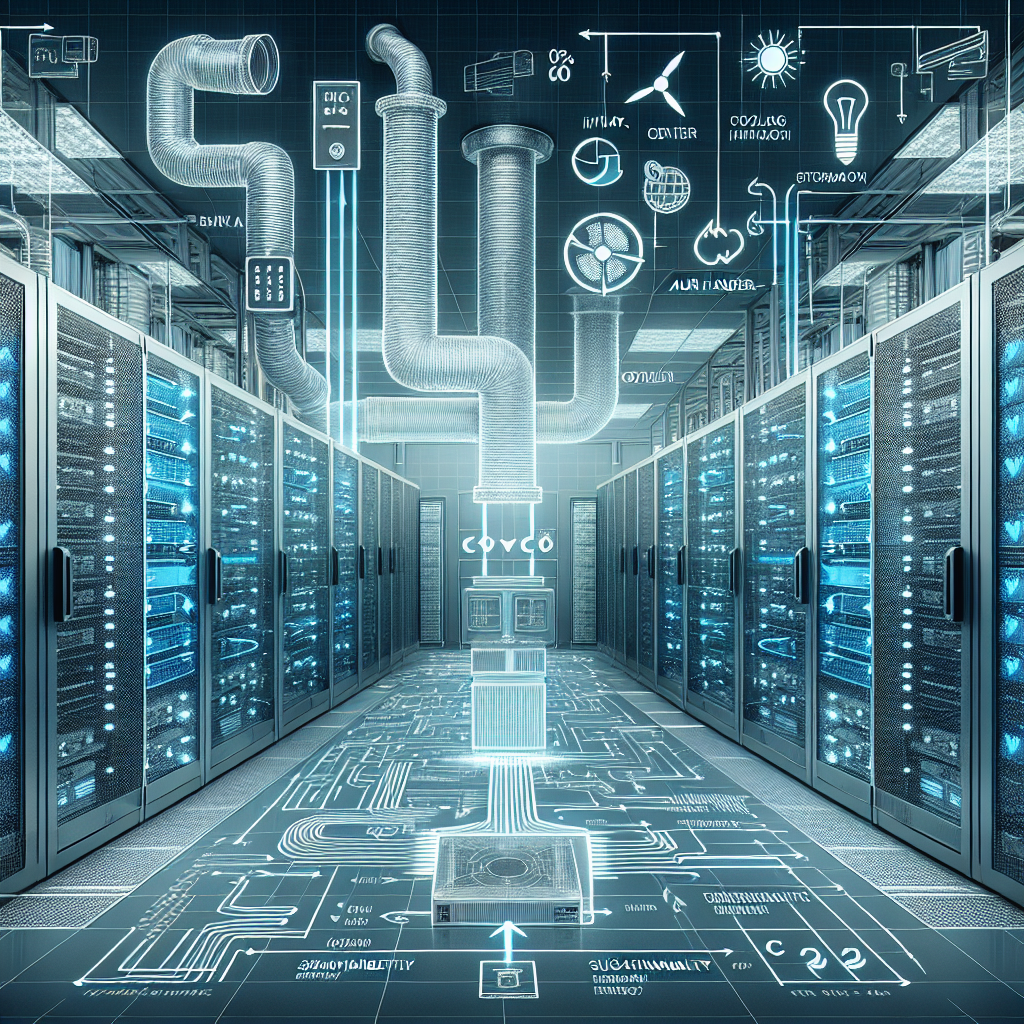Your cart is currently empty!
Understanding the Impact of HVAC on Data Center Operations

In today’s digital age, data centers play a crucial role in storing, processing, and managing vast amounts of information. These facilities are essential for the operation of businesses, government agencies, and other organizations that rely on technology to function effectively. One key component that plays a significant role in the operation of data centers is the HVAC (heating, ventilation, and air conditioning) system.
The HVAC system in a data center is responsible for maintaining optimal temperature and humidity levels to ensure the proper functioning of servers and other equipment. Data centers generate a significant amount of heat due to the high power consumption of servers and other hardware. Without proper cooling, these facilities can quickly overheat, leading to equipment failure and potential data loss.
The impact of HVAC on data center operations is significant and can have far-reaching consequences if not managed effectively. Here are some key points to consider when understanding the impact of HVAC on data center operations:
1. Temperature control: Maintaining the right temperature in a data center is crucial for preventing equipment overheating. The HVAC system must be able to cool the facility effectively, especially during periods of high server activity. Failure to do so can lead to equipment failure and downtime, which can be costly for businesses.
2. Humidity control: In addition to temperature control, the HVAC system must also manage humidity levels in the data center. High humidity can lead to condensation, which can damage equipment, while low humidity can cause static electricity buildup, leading to potential equipment failures.
3. Energy efficiency: HVAC systems in data centers are significant energy consumers, accounting for a large portion of the facility’s total energy usage. It is essential to design and operate these systems efficiently to minimize energy consumption and reduce operating costs.
4. Redundancy and backup: To ensure uninterrupted operation, data centers often have redundant HVAC systems in place. These backup systems can kick in if the primary system fails, helping to maintain temperature and humidity levels and prevent equipment damage.
5. Monitoring and maintenance: Regular monitoring and maintenance of the HVAC system are essential to ensure its proper functioning. Data center operators must conduct regular inspections, clean filters, and perform necessary repairs to prevent system failures.
In conclusion, the HVAC system plays a critical role in the operation of data centers. It is essential to understand the impact of HVAC on data center operations and take steps to ensure that these systems are designed, operated, and maintained effectively. By investing in high-quality HVAC equipment and implementing best practices for temperature and humidity control, data center operators can ensure the reliability and efficiency of their facilities.

Leave a Reply